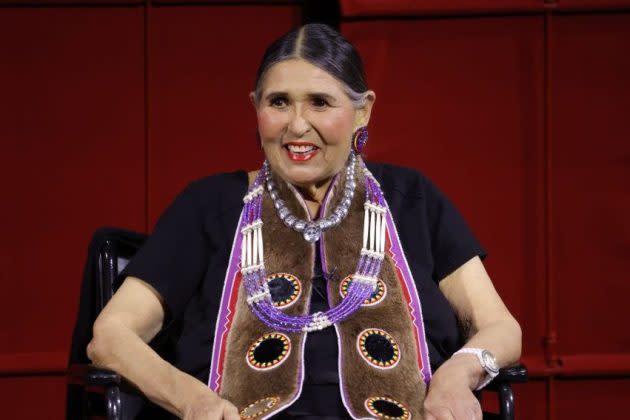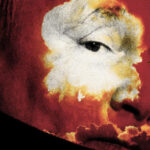
Sacheen Littlefeather, the activist for Native Americans who declined Marlon Brando’s Oscar for “The Godfather” on his behalf at the 1973 Academy Awards, died Sunday at 75, the Academy of Motion Pictures said. She had been suffering from breast cancer.
In June, the Academy of Motion Pictures Arts and Sciences apologized to Littlefeather for her treatment at the Oscars that night. Littlefeather attended an in-person presentation of the apology at the Academy Museum on Sept. 17.
More from Variety
At the Oscars, she was only given 60 seconds to read her speech on Native American rights, and was then escorted off the stage with audience members booing.
“He very regretfully cannot accept this very generous award,” Littlefeather said to the Academy Awards audience in . “And the reasons for this being are the treatment of American Indians today by the film industry… and on television in movie re-runs, and also with recent happenings at Wounded Knee.”
She was allowed to read her full speech at a later press conference, and it was printed in the New York Times. Raquel Welch, Clint Eastwood and Oscar co-host Michael Caine were among those who criticized her on-camera for disrupting the ceremony.
Littlefeather, born Marie Louise Cruz in Salinas, Calif., became interested in Native American issues in college and participated in the 1970 occupation of Alcatraz Island, adopting her name during that time.
After college, she joined SAG and reportedly met Brando, who took an interest in Native American issues, through Francis Ford Coppola who like Littlefeather, lived in San Francisco.
In a recent interview, Littlefeather told Variety what it was like to attend the Oscars on Brando’s behalf.
“It was my first time at the Academy Awards. I made it through my first hurdle, promising Marlon Brando that I would not touch that Oscar. But, as I walked off that stage, I did in the ways of courage, honor grace, dignity and truthfulness. I did so in the ways of my ancestors and the ways of Indigenous women.


“I was met with the stereotypical tomahawk chop, individuals who called at me, and I ignored all of them. I continued to walk straight ahead with a couple of armed guards beside me, and I held my head high and was proud to be the first Indigenous woman in the history of the Academy Awards to make that political statement.
“At that time in 1973, there was a media blackout on Wounded Knee and against the American Indian Movement that was occupying it. Marlon had called them in advance and asked them to watch the Academy Awards, which they did. As they saw me, up on stage, refusing that Academy Award for the stereotypes within the film industry, and mentioning Wounded Knee in South Dakota, it would break the media boycott.”
Littlefeather also recently reflected on death, telling Variety, “When we die, we know that our ancestors are coming to give. We know that we’re going to that spirit world from where we came. We take this as a warrior with pride and not defeat, looking forward to joining our ancestors who are going to be there with us at our last breath and they’re going to welcome us into that world on the other side and have a big celebration for us.”
A documentary about her life and activism, “Sacheen Breaking the Silence,” was released in 2021.
Though she had a few small roles in films including “The Trial of Billy Jack,” Littlefeather said she was blacklisted in Hollywood after the Oscars, and returned to San Francisco to continue her activism and work in theater and health care.
Best of Variety
Sign up for Variety’s Newsletter. For the latest news, follow us on Facebook, Twitter, and Instagram.




